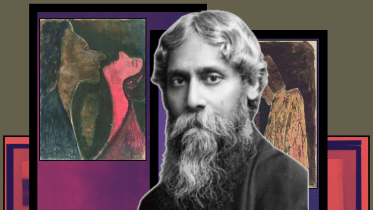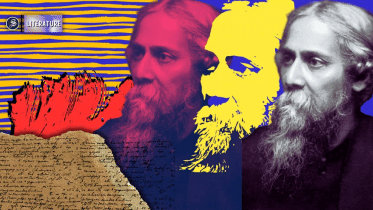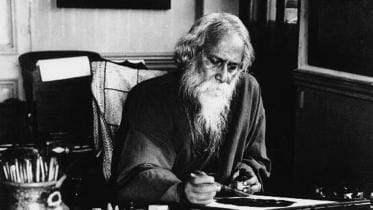rabindranath death anniversary
Honouring Rabindranath Tagore: 84 years of enduring legacy
Tagore was not simply a literary genius who gifted Bengali literature its modern form. He was an architect of consciousness. The first non-European Nobel laureate in literature, he brought Bengali language and thought into global conversation with “Gitanjali” in 1913. His creative output—across poetry, fiction, music, theatre, education, and political thought—was vast, but always anchored in a core idea: that art must be in service of the human spirit.
6 August 2025, 06:31 AM
Rabindranath’s rebellion
“The liberation that comes through sorrow is greater than the sorrow,” says Nikhilesh, in Home and the World. I quote from Penguin’s Modern Classics edition, in Sreejata Guha’s translation.
9 August 2024, 18:00 PM
6 essential Rabindranaths you should read
One does not need to remember Rabindranath on the occasion of the anniversary of his death—22 Srabon or August 7 to be precise.
7 August 2024, 18:00 PM
The astounding optimism in Tagore’s songs
His words convince the listener that the world is actually a beautiful place where truth, honesty, and simplicity are the quenching clouds above a desolate desert of dry despair and monotony.
6 August 2023, 13:55 PM
The forever debt to Rabindranath Tagore
From children’s books to internationally applauded films, from lyrical ballads to Netflix series, wherever we put our senses, they are filled with the legacy of the “Bard of Bengal”, Rabindranath Tagore. Do we ever ask ourselves what we would do without him? Do we wonder how the entire culture of the Indian subcontinent is wrapped around his existence?
6 August 2023, 09:40 AM







